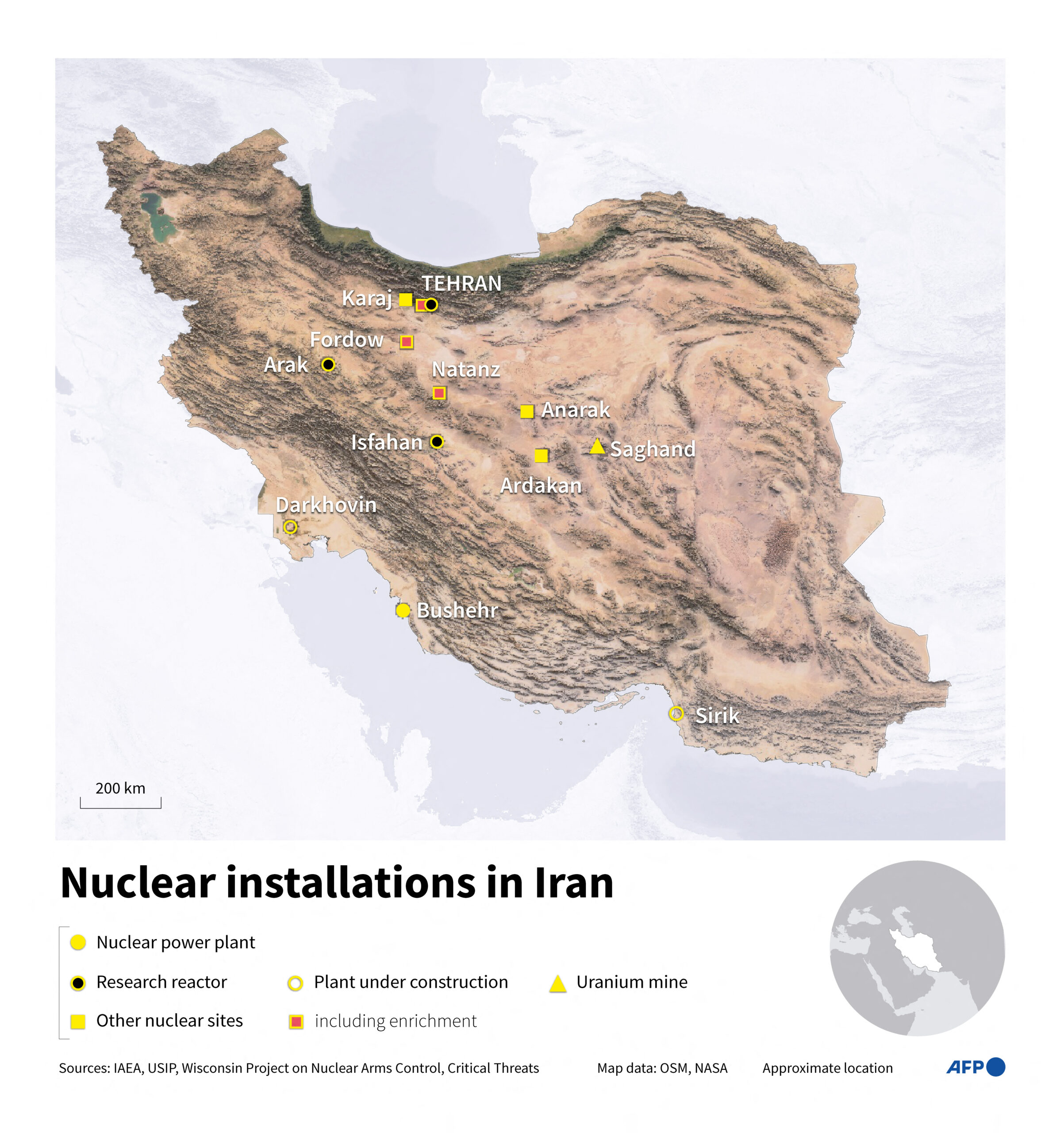
Iran’s Foreign Ministry said the next round of negotiations between Iran and the United States will be held in Muscat, Oman, according to two local state media, following earlier reports that they would happen in Rome.
The Ministry’s spokesperson said the talks will take place on Saturday April 19.
Newsweek has reached out to the U.S. State Department, as well as the foreign ministries of Oman and Italy for comment.
Why It Matters
U.S. President Donald Trump renewed diplomacy with Iran—backed by threats of military action—in a bid to deter Iran from developing nuclear weapons. As talks resume, both Washington and Israel warn they’re ready to act if Iran advances its nuclear program, despite Tehran’s claims of only peaceful intent.
The stakes in the talks are high, with the risk of war if they fail.
Graphic by AFP/Getty Images
What To Know
Iran’s Foreign Ministry Spokesperson Esmaeil Baghaei said the next round of negotiations between Iran and the United States will be held in Muscat, Oman on Saturday, the Islamic Republic News Agency (IRNA) reported Tuesday.
Some media had earlier reported that the venue would be Rome.
The U.S. and Iran have continued to exchange threats of war and boost their military readiness in recent weeks.
While both sides expressed positive sentiments on progress following Saturday’s meeting, held in and mediated by Oman, Trump has voiced disappointment over the slow progress of nuclear negotiations, reiterating his rejection that Iran could ever acquire nuclear weapons, as concerns grow over its enrichment program.
What People Are Saying
White House Special Envoy to the Middle east Steve Witkoff told Fox News Channel: “This is going to be much about verification on the enrichment program and then ultimately verification on the weaponization. That includes missiles, the type of missiles that they have a stockpile there, and it includes the trigger for a bomb.”
Oman’s Foreign Minister Badr Albusaidi on X, Saturday: “I would like to thank my two colleagues for this engagement which took place in a friendly atmosphere conducive to bridging viewpoints and ultimately achieving regional and global peace, security and stability. We will continue to work together and put further efforts to assist in arriving at this goal.”
Iran’s Foreign Minister Abbas Araghchi on X, Saturday: “Constructive and promising round of indirect talks with US Special Envoy @SteveWitkoff, kindly hosted and mediated by my brother @badralbusaidi of the Sultanate of Oman. The talks were conducted in an atmosphere of mutual respect. I elaborated Iran’s viewpoints in a firm yet forward-looking manner. Both sides decided to continue the process in a matter of days.”
What Happens Next
The U.S.-Iran meetings are crucial on deciding the next course of action regarding Iran’s nuclear program, amid significant tensions that elevate the risks of direct military confrontation in the Middle East.
